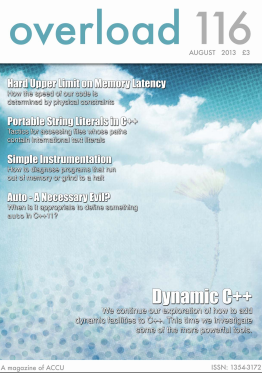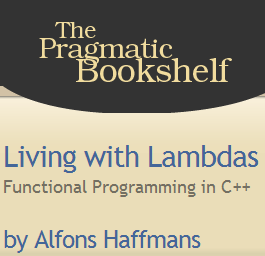Overload 116 available

Overload 116
Auto -- A Necessary Evil? Part 2 -- Roger Orr
When is the use of auto good, and when is it evil?
Dynamic C++, Part 2 -- Alex Fabijanic
Alex Fabijanic and Richard Saunders continue to explore dynamic solutions in C++.
Portable String Literals in C++ -- Alf Steinbach
How hard can it be to make a file in C++ with international text literals in its name? Alf Steinbach shows us how to write a file called π.recipe.
Hard Upper Limit on Memory Latency -- Sergey Ignatchenko
How low can latency really get?
... and more!

 The "universal references" term is getting traction:
The "universal references" term is getting traction: From this month's KDE Akademy conference:
From this month's KDE Akademy conference: A fresh Scott Meyers post about a brand-new C++14 feature:
A fresh Scott Meyers post about a brand-new C++14 feature: We have such a powerful language, and what a powerful language it is.
We have such a powerful language, and what a powerful language it is.
